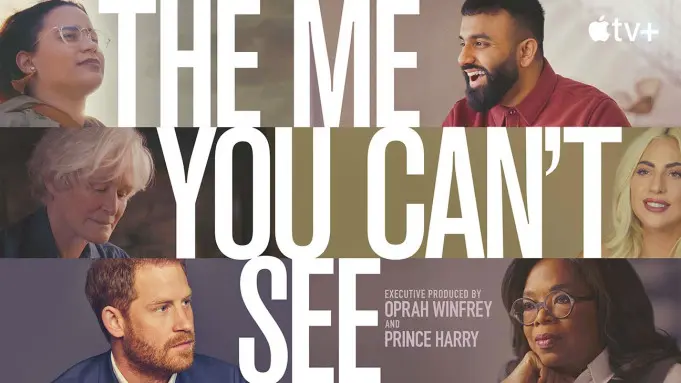Summary
The Me You Can’t See has its heart in the right place, but filtering mental health through the lens of celebrity culture can’t help but seem a bit misguided.
The cosy relationship between Prince Harry and Oprah Winfrey following that interview that the entire world had an opinion on is one of the weirder pairings in pop culture. But is it that weird, really? Oprah already has a creative relationship with Apple TV+, which is where their new docuseries The Me You Can’t See is airing. And Harry’s proximity to mental health concerns following his own issues in detaching himself from his royal family and his wife’s very public consideration of suicide probably shouldn’t be understated. Piers Morgan will hate this, which probably means there’s some value in it.
Blimey, it’s cloying, though. Not to minimize what’s an important topic, obviously, but there’s a grating sense of lofty self-importance to this surely well-intentioned but ultimately preachy endeavour. Being told by a prince how difficult the pandemic has been is a difficult thing to swallow, even if there is a wise acknowledgement that it has not been equally tough for everyone. I certainly could have done without some of the “healing” imagery and sounds, which feel closer to a meditation app than a TV series, but the spare production is kind of mandatory in this kind of thing. Nobody wants glossy sensationalism with their earnest considerations of mental health.
Some of the show’s ideas are worthwhile, though, and stripping away the royal artifice of Harry is smart. I’ve always liked him in large part because he made big, clumsy mistakes in the manner that all young people, but especially young men, are inclined to do. Anyone with even a cursory knowledge of his background, his mother’s relationship with the rest of the royal family, and the culture’s endless, ravenous fascination with the monarchy in general, wouldn’t need too many guesses at why he was acting out. Harry was born into privilege, but that privilege came with the brutal demands of a British public who have always on some level considered public figures to be public property.
The Me You Can’t See argues that Harry’s experiences were just a more concentrated version of the same phenomenon that all celebrities experience, thus justifying guest appearances from celebrity chefs and champion boxers and Lady Gaga. Again, it’s natural and predictable to feel less sympathy for those with more privilege – it’s easy, if incorrect, to imagine that you can buy a nice-looking gilded cage to keep your anxieties in. Lady Gaga could tap virtually anyone in the Western world on the shoulder and they’d be pleased to see her, but that’s not the point. Who does she see when she looks in the mirror? How does she feel about that person? These are more relatable concerns, but they are unavoidably filtered through our preconceived ideas of what fame and celebrity and fortune are, what they mean and to whom.
It’s hard to give a sh*t, in other words, about Lady Gaga, and equally difficult to see how her sharing her own truth, however brave it might be to do so, will actually matter to the people who’re suffering in silence and can’t just casually appear on an Apple TV+ show hosted by Oprah. Mental health, and the stigmas attached to it, are in urgent need of normalization and reliable support, but lionizing the already privileged for acknowledging that they really are human after all seems a pretty roundabout way to achieve that.




